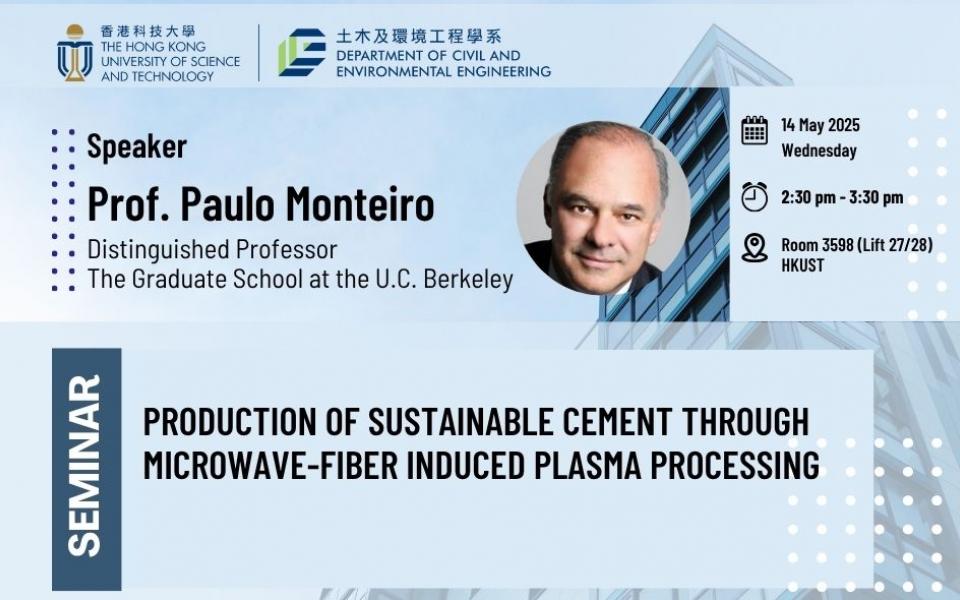Civil Engineering Departmental Seminar - Production of sustainable cement through microwave-fiber induced plasma processing
Supporting the below United Nations Sustainable Development Goals:支持以下聯合國可持續發展目標:支持以下联合国可持续发展目标:
Production of sustainable cement through microwave-fiber induced plasma processing
The rapid decarbonization of the cement industry is critical for meeting global climate goals. Currently, cement manufacturing accounts for approximately 7.5% of global anthropogenic CO2 emissions, arising from the calcination of limestone and fossil fuel combustion at 1450 °C. Efforts to reduce clinker content using supplementary cementitious materials can only go so far, as Portland cement clinker remains essential to the mechanical and chemical performance of modern cements. Our research team is focused on fundamentally transforming the cement production process by pioneering a novel microwave-fiber-induced plasma (MFIP) process that recreates the thermal, chemical, and kinetic pathways of clinker formation. The interaction between the microwaves and carbon fibers induces electrical discharges that coalesce into stable air plasma, leading to a rapid and significant heat release. By harnessing microwave energy to drive ultrafast plasma heating (>2400°C in seconds), MFIP unlocks entirely new reaction pathways, from liquid-phase-driven clinker transformations, slashing the standard processing time by two orders of magnitude, from hours to mere seconds. Our process significantly reduces emissions by dramatically shortening clinker production time, replacing conventional limestone feedstock with recycled concrete waste, and enabling clean heating when powered by renewable electricity. The presentation will also discuss how x-ray synchrotron radiation and advanced electron microscopy can unravel existing challenges in the structure of cements and hydration reactions.
Prof. Paulo Monteiro is a Distinguished Professor in the Graduate School at the U.C. Berkeley. He has published over 310 archival papers and he co-authored a comprehensive textbook on concrete that is widely used and has been translated into Japanese, Chinese, Greek, Spanish, Portuguese, and Persian. He has been elected to the U.S. National Academy of Engineering and has received the following awards for this research: Stephen Brunauer Award (twice), Premio Ari Torres, and Wason Medal for Materials Research.
